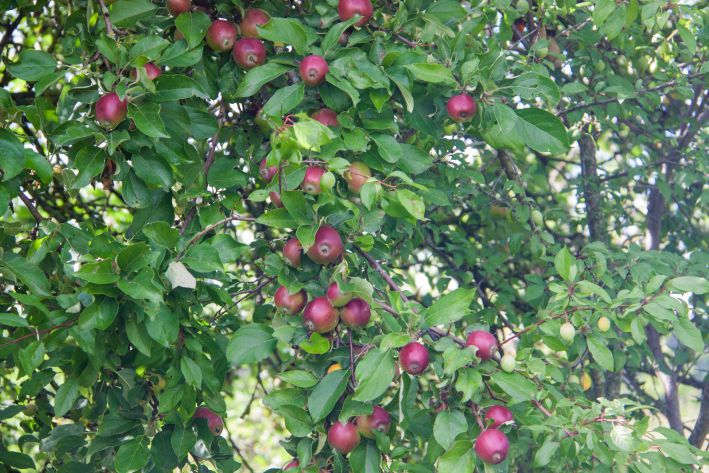Trees are characterized by youthful maximalism.
Apple and pear trees at different stages of their physiological maturation, provided there are suitable weather conditions and fertilizing, can produce a greater number of ovaries than they can bear and grow in principle, notes agronomist and landscape designer Anastasia Kovrizhnykh .
In this regard, most gardeners note the periodicity of fruiting, the uneven harvest and "technical failures" of the tree - the branches cannot withstand the weight of the harvest and break under its weight.
To avoid these problems, it is necessary to carry out crop rationing. Namely, removing excess ovaries.
Standardization must begin immediately after the natural June fall of the ovary, when there are still many times more potential fruits left on the tree than are needed for the harvest.

In mature trees, the procedure is carried out by shaking the tree.
For young varieties and those that are “convenient” (for example, low-growing varieties), standardization is carried out manually.
It is necessary to remove those ovaries that are smaller than the neighboring ones, as well as diseased, pest-infected and defective ones.
Standardization continues throughout the summer period.
It is especially important to do this on columnar apple and pear trees and on those varieties of apple trees that have short petioles and many ovaries at a time in one bouquet branch.








